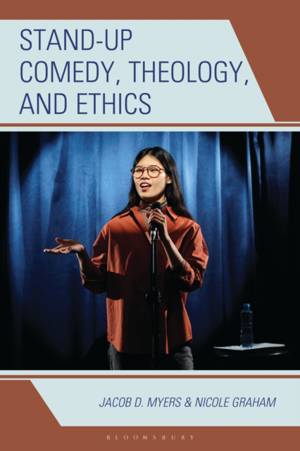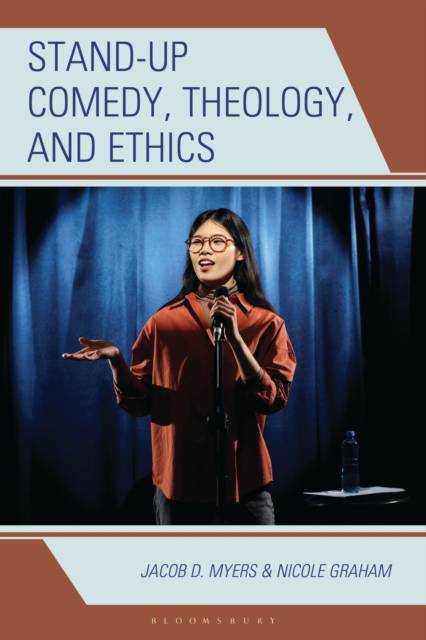
- Afhalen na 1 uur in een winkel met voorraad
- Gratis thuislevering in België vanaf € 30
- Ruim aanbod met 7 miljoen producten
- Afhalen na 1 uur in een winkel met voorraad
- Gratis thuislevering in België vanaf € 30
- Ruim aanbod met 7 miljoen producten
Omschrijving
Bringing together the distinct but connected disciplines of theology and ethics, Stand-up Comedy, Theology, and Ethics adds to the growing field of humor and religion.
Beginning by re-considering what we know about jokes and laughter, the authors propose that more attention needs to be paid to the quasi-sacramental, magical quality of jokes and the ways laughter can shift the affective states of an audience. They then turn their attention to key issues and debates within stand-up comedy. First, is the comical legitimacy or illegitimacy of comedians who employ humor ambiguously so that we are not sure at who or what they are "punching". Second, is the phenomenon of canceling comedians for their behavior off stage. Third, is the sociopolitical possibilities of stand-up. Ultimately, the authors argue that there is theological, religious, and ethical significance to contemporary stand-up comedy.
Specificaties
Betrokkenen
- Auteur(s):
- Uitgeverij:
Inhoud
- Aantal bladzijden:
- 176
- Taal:
- Engels
- Reeks:
Eigenschappen
- Productcode (EAN):
- 9781978714762
- Verschijningsdatum:
- 04/09/2025
- Uitvoering:
- Hardcover
- Formaat:
- Genaaid
- Afmetingen:
- 152 mm x 229 mm
- Gewicht:
- 399 g

Alleen bij Standaard Boekhandel
Beoordelingen
We publiceren alleen reviews die voldoen aan de voorwaarden voor reviews. Bekijk onze voorwaarden voor reviews.







